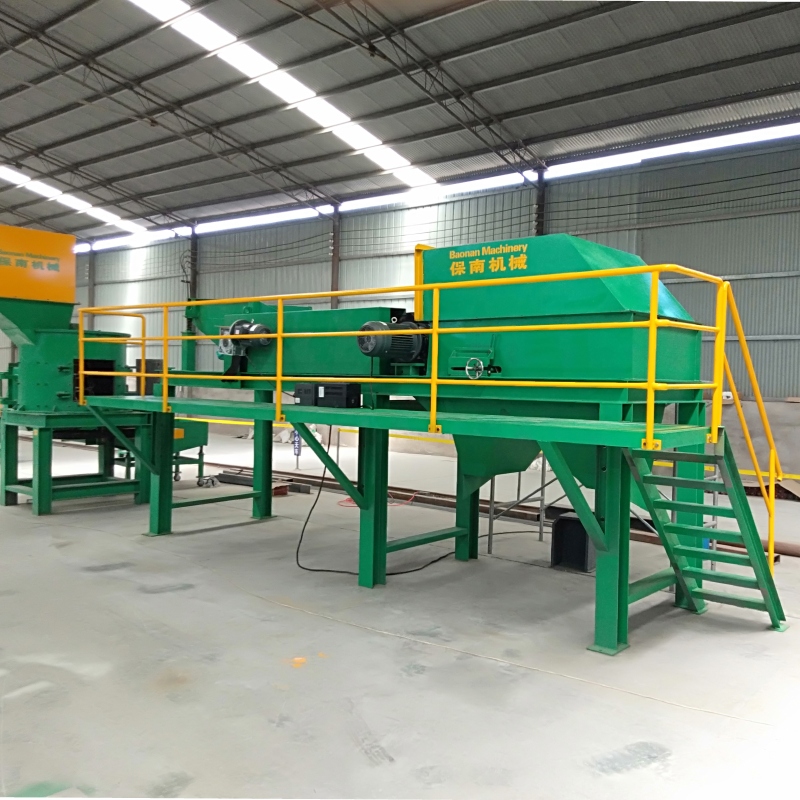

Déc . 11, 2024 11:42 Back to list
The Economics of Industrial Shredding Machine Prices
Industrial shredding machines play a vital role in waste management and recycling industries. They are essential tools for reducing the volume of various materials, including plastics, metals, paper, and electronic waste. Understanding the prices of these machines is crucial for businesses that aim to invest in solid waste disposal methods. This article delves into the factors influencing the prices of industrial shredding machines, the types available, market trends, and how to choose the right machine based on budget and needs.
Types of Industrial Shredding Machines
There are several types of industrial shredding machines, each designed for specific materials and applications. The most common types include
1. Single-Shaft Shredders These machines are designed to shred materials using a single rotor. They are versatile and can handle a variety of materials, making them suitable for operations with diverse waste streams.
2. Two-Shaft Shredders These machines consist of two parallel shafts that rotate in opposite directions. They are particularly effective for shredding tough materials like tires and metals, providing a finer output.
3. Granulators Typically used for recycling plastic and producing uniform particle sizes, granulators are ideal for smaller waste volumes and are commonly found in manufacturing settings.
4. Hammer Mills These shredders utilize rotating hammers to crush materials. They are commonly used for processing softer materials like wood and agricultural waste.
Factors Influencing Prices
The price of industrial shredding machines varies significantly based on several factors
1. Type and Size The type of shredder heavily influences its price. Single-shaft machines are generally more affordable than two-shaft shredders or granulators, which may require more advanced technology. Additionally, larger machines with higher throughput capacity usually demand higher prices.
2. Material and Build Quality The materials used in the construction of shredders can impact their durability and performance. Machines built with high-quality steel or other strong materials may come at a premium but offer more longevity.
3. Features and Technology Advanced features such as automatic feeding systems, dust suppression mechanisms, or integrated sorting systems can increase the cost of the machinery. Modern shredders may also include digital controls or remote monitoring capabilities, further driving up the price.

4. Brand Reputation Established brands with proven track records may charge higher prices due to their reliability and customer support services. Investing in a well-known brand can provide businesses with peace of mind regarding machine maintenance and availability of replacement parts.
5. Market Demand and Supply The general market conditions, including demand for recycling solutions and availability of supply, can cause fluctuations in prices. A higher demand for eco-friendly waste disposal solutions may lead to increased prices due to competitiveness.
Current Market Trends
In recent years, the demand for industrial shredders has skyrocketed with increased environmental awareness and waste management regulations. Governments worldwide are pushing for more sustainable waste disposal solutions, increasing the demand for recycling equipment, including shredders. As a result, manufacturers are investing in researching and developing more efficient machinery to cater to this growing market.
The rise of e-commerce has also led to the generation of different types of waste, especially from packaging materials. Consequently, companies are looking for shredders that can handle mixed waste efficiently.
Choosing the Right Shredding Machine
When selecting an industrial shredding machine, it is essential to assess the specific needs of your operations. Consider the following
1. Type of Material Understand the types of materials your business will be shredding. Different machines excel in processing different materials.
2. Volume of Waste Evaluate the amount of waste generated to choose a machine with an appropriate throughput capacity.
3. Budget Set a clear budget that includes not only the initial purchase price but also ongoing operational costs, such as maintenance and energy consumption.
4. Long-term Investment Consider the long-term efficiency and durability of the machine, as investing in quality equipment can result in lower costs over time.
In conclusion, the prices of industrial shredding machines vary widely due to factors like type, features, and market conditions. By understanding these aspects, businesses can make informed decisions that will positively impact their waste management strategies and ultimately contribute to more sustainable operations.
Latest news
Troubleshooting Common Eddy Separator Problems
NewsJul.04,2025
The Role of Metal Recycling Plants in Circular Economy
NewsJul.04,2025
The Impact of Recycling Line Pickers on Waste Management Costs
NewsJul.04,2025
Safety Features Every Metal Shredder Should Have
NewsJul.04,2025
How Industrial Shredders Improve Waste Management Systems
NewsJul.04,2025
How Cable Granulators Contribute to Sustainable Recycling
NewsJul.04,2025